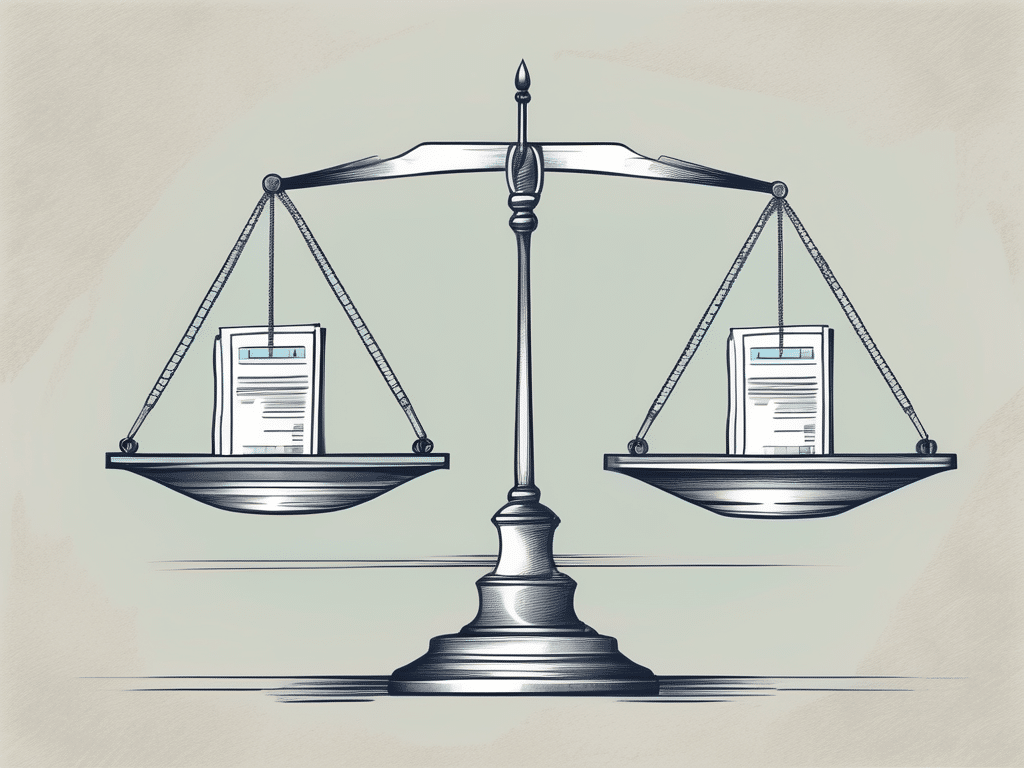Arbitration clauses are an essential component of any well-drafted contract. By including these clauses, parties can proactively establish an efficient and cost-effective alternative dispute resolution process. Understanding the purpose and benefits of arbitration clauses is crucial for businesses and individuals to protect their interests and manage potential conflicts effectively.
Understanding Arbitration Clauses
Definition and Function of Arbitration Clauses
An arbitration clause is a contractual provision that requires parties to resolve disputes through arbitration rather than litigation. It stipulates that any disagreements arising from the contract will be resolved by one or more impartial individuals, known as arbitrators, rather than through traditional court proceedings.
By including an arbitration clause, parties voluntarily agree to submit their disputes to binding arbitration. This alternative dispute resolution method is based on the principle of party autonomy, allowing the involved parties to choose their own arbitrators, determine procedural rules, and designate the place of arbitration.
Arbitration clauses are commonly found in a wide range of contracts, including employment agreements, commercial contracts, and consumer agreements. They serve as a mechanism to streamline dispute resolution processes and avoid the complexities and costs associated with traditional litigation. The inclusion of an arbitration clause can provide parties with a level of predictability and control over the resolution of potential disputes, fostering a sense of confidence and security in their business relationships.
The Role of Arbitration in Contractual Disputes
Arbitration plays a fundamental role in the resolution of contractual disputes. It offers parties a flexible and efficient process that can be tailored to suit their specific needs. Unlike traditional litigation, arbitration allows for more streamlined proceedings and offers several advantages, including speed, privacy, and flexibility in procedural matters.
Furthermore, arbitration can be particularly beneficial in international disputes where parties may come from different legal and cultural backgrounds. The neutrality of the arbitral process and the ability to select arbitrators with experience in relevant fields can help bridge potential gaps in understanding and interpretation, leading to more effective and culturally sensitive dispute resolution outcomes.
Overall, the use of arbitration clauses reflects a growing trend towards alternative dispute resolution mechanisms in modern legal practice. By embracing arbitration as a means of resolving conflicts, parties can not only expedite the resolution process but also maintain greater control over the outcome, ultimately promoting efficiency and preserving valuable business relationships.
The Benefits of Arbitration Clauses
Cost-Effectiveness of Arbitration
One of the significant benefits of including arbitration clauses in contracts is cost-effectiveness. Litigation can be an expensive and time-consuming process due to court fees, attorney fees, and lengthy court proceedings. In contrast, arbitration offers parties a more efficient and cost-friendly alternative.

Arbitration generally has fewer formalities and requires less discovery compared to litigation. This streamlined process reduces the overall costs, making arbitration an attractive option for businesses and individuals seeking a cost-effective way to resolve disputes.
Let’s take a closer look at the cost-effectiveness of arbitration. By avoiding the lengthy court proceedings, parties can save significant amounts of money on attorney fees. Additionally, arbitration does not require extensive document production or depositions, further reducing the expenses involved. This cost-effectiveness allows parties to allocate their resources more efficiently, focusing on their core business activities rather than getting entangled in expensive legal battles.
Efficiency and Time-Saving Aspects
Arbitration is known for its efficiency and time-saving aspects. Unlike court litigation, which can be subject to heavy caseloads and time delays, arbitration proceedings can be scheduled promptly and tailored to meet the specific needs of the parties involved.
Arbitration offers greater flexibility in terms of scheduling, allowing parties to select hearing dates that accommodate their schedules. This flexibility helps speed up the resolution process, ensuring that disputes are resolved in a timely manner.
Let’s delve deeper into the efficiency of arbitration. In court litigation, cases often get delayed due to crowded court dockets, resulting in prolonged waiting periods. However, in arbitration, parties have more control over the timeline. They can choose arbitrators who are available and can dedicate their time to the case, ensuring a more expedited process. This efficiency not only saves time but also allows parties to move forward and focus on their respective goals and objectives.
Confidentiality and Privacy Protection
Confidentiality is a crucial aspect of arbitration that makes it an attractive option for many parties. Unlike court proceedings, which are generally open to the public, arbitration offers a private and confidential environment.
Parties involved in arbitration can ensure that their dispute remains confidential, protecting sensitive business information and maintaining privacy. This confidentiality not only helps preserve business relationships but also prevents potentially damaging information from being publicized.
Let’s explore the importance of confidentiality in arbitration. In today’s highly competitive business landscape, companies often have valuable trade secrets and proprietary information that they want to safeguard. By choosing arbitration, parties can keep their disputes out of the public eye, ensuring that sensitive information remains confidential. This protection allows businesses to maintain their competitive edge and avoid any negative repercussions that could arise from public exposure of their internal affairs.
Drafting an Effective Arbitration Clause
When drafting an effective arbitration clause, parties should consider including specific elements to ensure clarity and enforceability. These elements may include a clear statement that the parties agree to resolve disputes through arbitration, the number of arbitrators, the governing law, and the seat of arbitration.

It is also essential to address procedural rules, such as whether the arbitration will be conducted under the rules of a specific arbitration institution or if the parties will define their own procedural guidelines.
Furthermore, parties should consider including provisions related to the language of the arbitration, the confidentiality of the proceedings, the allocation of costs, and the enforcement of the arbitral award. These additional elements can help streamline the arbitration process and provide clarity on important procedural matters.
Common Mistakes to Avoid
While drafting an arbitration clause, parties should be aware of common mistakes that can hinder its effectiveness. Some common errors include vague or ambiguous language, failing to designate an arbitration institution, and omitting specific provisions to address the appointment and qualifications of arbitrators.
Additionally, parties should avoid overlooking the importance of defining the scope of disputes covered by the arbitration clause and the process for selecting arbitrators in case of a dispute. Failing to address these key aspects can lead to confusion and potential challenges during the arbitration process.
To ensure an effective arbitration clause, parties should carefully review and seek legal advice to avoid these common mistakes and to ensure that their clauses align with their specific needs and contractual obligations.
Legal Considerations for Arbitration Clauses
Enforceability of Arbitration Clauses
The enforceability of arbitration clauses varies across jurisdictions. However, many countries recognize and uphold the validity of such clauses, reflecting a strong pro-arbitration stance.

Arbitration clauses have gained widespread acceptance due to their ability to streamline dispute resolution processes and provide parties with a more efficient and cost-effective alternative to traditional litigation. By agreeing to arbitration, parties can benefit from the experience of arbitrators in specialized fields, ensuring a more informed decision-making process.
When including arbitration clauses in contracts, parties should familiarize themselves with the local laws and international conventions regarding the enforceability of these clauses. This understanding ensures that the arbitration clause will be recognized and given effect by the relevant courts.
Jurisdictional Issues and Arbitration
Arbitration clauses can play a crucial role in addressing jurisdictional issues. When parties operate in different jurisdictions, disputes can arise concerning the appropriate court to hear the case. By including an arbitration clause, parties can avoid potential conflicts related to jurisdiction and choose a neutral forum for dispute resolution.
Moreover, arbitration offers parties the flexibility to select arbitrators with experience in the subject matter of the dispute, ensuring a more tailored and efficient resolution process. This customization can lead to quicker resolution times and more satisfactory outcomes for all parties involved.
However, it is important to ensure that the arbitration clause clearly outlines the chosen jurisdiction, including any specific rules or laws governing the arbitration process.
The Potential Drawbacks of Arbitration Clauses
Limitations of Arbitration
While arbitration offers numerous advantages, it also has certain limitations. For example, arbitrator decisions are typically final and binding, with limited recourse for appeal. This finality may be advantageous in some instances, but it can also limit parties’ options if they are dissatisfied with the outcome.
Additionally, the informality of arbitration procedures may limit the availability of extensive discovery and hinder parties’ ability to present evidence fully.
Potential Risks and Challenges
Another potential drawback of arbitration is the risk of an arbitrator making an incorrect or arbitrary decision. Unlike judges, whose decisions are generally subject to higher levels of scrutiny and precedent, arbitrators’ decisions may not be subject to the same level of review.
Furthermore, enforcing arbitration awards can sometimes present challenges, particularly if the award needs to be enforced in a different jurisdiction.
One specific challenge that parties may face when enforcing arbitration awards in a different jurisdiction is the need to navigate through complex international legal frameworks. Each jurisdiction may have its own set of rules and regulations regarding the recognition and enforcement of foreign arbitration awards. This can lead to delays and additional costs as parties seek legal assistance to ensure compliance with the relevant laws and procedures.
Moreover, the lack of a formal appeals process in arbitration can be a double-edged sword. While it promotes efficiency and expediency, it also means that parties may not have the opportunity to correct potential errors made by the arbitrator. This can be particularly concerning in complex cases where the arbitrator’s decision may have far-reaching consequences.
Additionally, the confidentiality that is often touted as an advantage of arbitration can also be a drawback in certain situations. While confidentiality can protect sensitive business information, it can also prevent the public from gaining insight into important legal issues. This lack of transparency may lead to a lack of accountability and hinder the development of legal precedent.
In conclusion, including arbitration clauses in contracts is of paramount importance, providing parties with numerous advantages, such as cost-effectiveness, efficiency, and confidentiality. However, careful drafting and consideration of legal implications are essential to maximize the benefits of arbitration clauses and mitigate potential drawbacks. By understanding and appreciating the significance of these clauses, parties can proactively protect their interests and promote efficient dispute resolution in the contractual context


